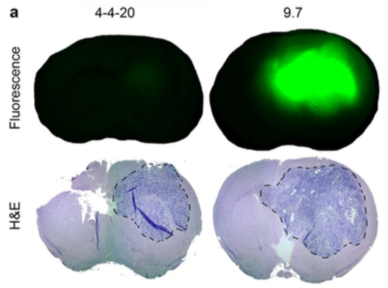
New study to help women make better breast-cancer surgery decisions
Women face big decisions soon after being hit with a cancer diagnosis, including whether to have a breast-conserving lumpectomy or mastectomy.

Study: Diet limiting specific amino acids may be key to weight loss
A new study in mice has suggested that counting calories might not be the only way to improve humans’ metabolic health. Researchers at the University of Wisconsin-Madison, in a study published today in The Journal of Physiology, found lowering the consumption of specific types of amino acids (the building blocks of protein) called branched-chain amino acids (BCAAs) improved metabolic health, even when overall calories were not reduced.

Radiology training program earns national recognition
The Radiology training program at the University of Wisconsin School of Medicine and Public Health was recently named the best of its kind in the country by AuntMinnie.com, an online resource of information, news and education about the field of medical imaging.

UW–Madison and VA study veterans and Alzheimer’s disease
More than five million Americans are living with Alzheimer’s disease and experts expect that number to triple by 2050. And veterans face a higher risk than the general population.

Myeloma vaccine research earns $600,000 Leukemia and Lymphoma Society grant
UW Carbone Cancer Center hematologist and myeloma researcher Fotis Asimakopoulos, MD, PhD, was awarded a Leukemia and Lymphoma Society grant to identify patients mostly likely to benefit from a personalized cancer vaccine.

Maureen Durkin Named Chair of Population Health Sciences
Maureen Durkin, PhD, DrPH, will become the next chair of the Department of Population Health Sciences, and the Evan and Marion Helfaer Professor of Public Health at the University of Wisconsin School of Medicine and Public Health.

UW study uses ‘bio-panning’ to find human antibodies for brain cancer stem cells
Using a method described as similar to panning for gold, Carbone Cancer Center scientists discovered human antibodies for the cancer stem cells of glioblastoma, one of the most difficult brain cancers to treat.

Wisconsin Alzheimer’s Disease Research Center launches podcasts
“Dementia Matters” podcasts that offer basic information about Alzheimer’s disease are now available from the University of Wisconsin School of Medicine and Public Health.

Leading cause of vision loss in older adults shows dramatic decline
The risk of developing age-related macular degeneration (AMD), the leading cause of vision loss in older adults, has decreased significantly for the baby boom generation.

Patrick McKenna named president of American Association of Clinical Urologists
Patrick McKenna, MD, chief of the Division of Pediatric Urology at the University of Wisconsin School of Medicine and Public Health, has assumed the role as president of the American Association of Clinical Urologists (AACU).

Darcie Moore receives grant to study how brain cells age
A new grant of $100,000 will allow Dr. Darcie Moore to study how neural stem cells age, and how this can lead to cognitive decline and other maladies of old age.

New clinical tool identifies patients likely to have seizures
A new scoring system developed by a UW School of Medicine and Public Health neurologist may help physicians identify which critically ill patients are likely to have seizures.